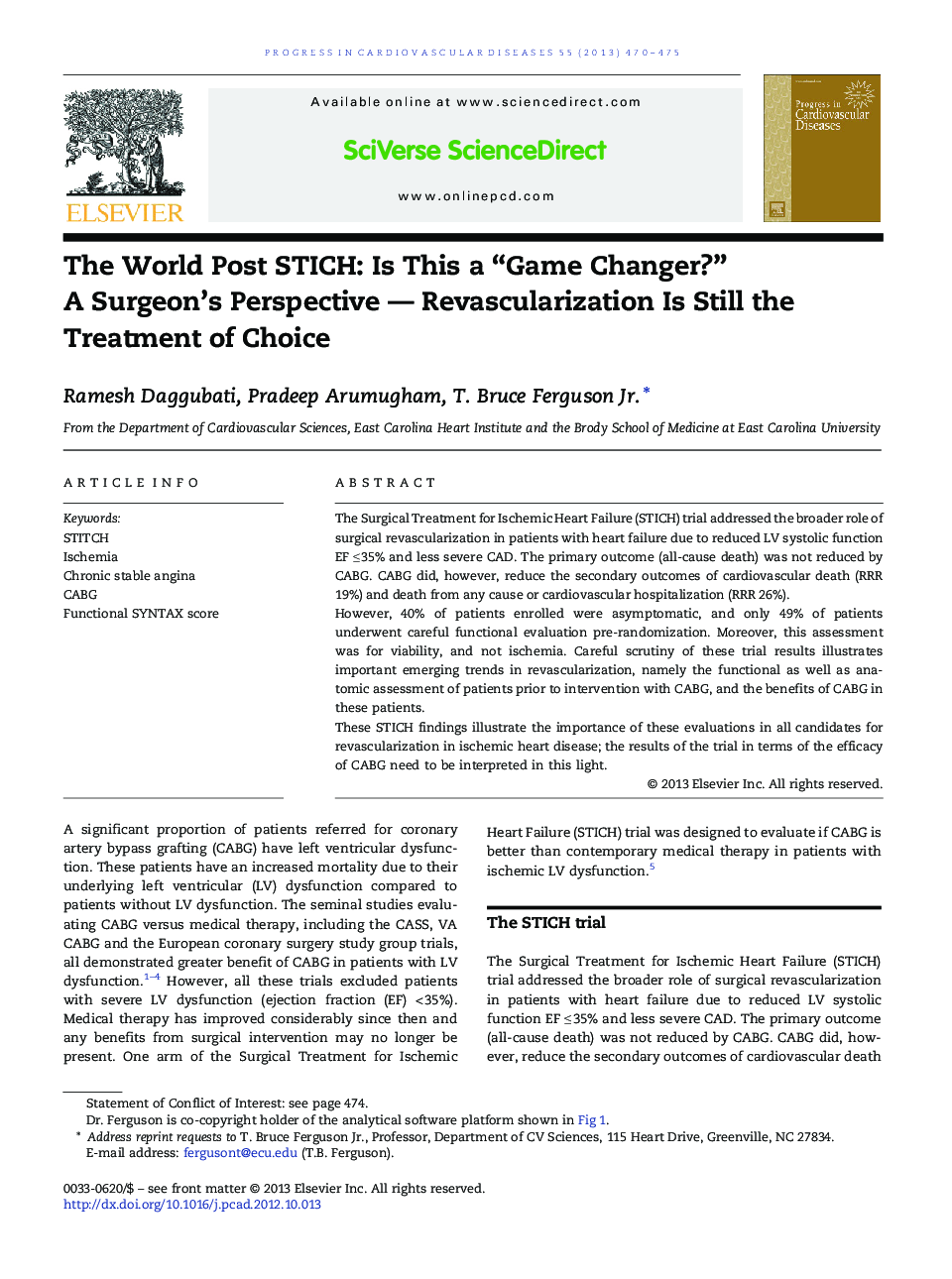| Article ID | Journal | Published Year | Pages | File Type |
|---|---|---|---|---|
| 3006701 | Progress in Cardiovascular Diseases | 2013 | 6 Pages |
The Surgical Treatment for Ischemic Heart Failure (STICH) trial addressed the broader role of surgical revascularization in patients with heart failure due to reduced LV systolic function EF ≤ 35% and less severe CAD. The primary outcome (all-cause death) was not reduced by CABG. CABG did, however, reduce the secondary outcomes of cardiovascular death (RRR 19%) and death from any cause or cardiovascular hospitalization (RRR 26%).However, 40% of patients enrolled were asymptomatic, and only 49% of patients underwent careful functional evaluation pre-randomization. Moreover, this assessment was for viability, and not ischemia. Careful scrutiny of these trial results illustrates important emerging trends in revascularization, namely the functional as well as anatomic assessment of patients prior to intervention with CABG, and the benefits of CABG in these patients.These STICH findings illustrate the importance of these evaluations in all candidates for revascularization in ischemic heart disease; the results of the trial in terms of the efficacy of CABG need to be interpreted in this light.
